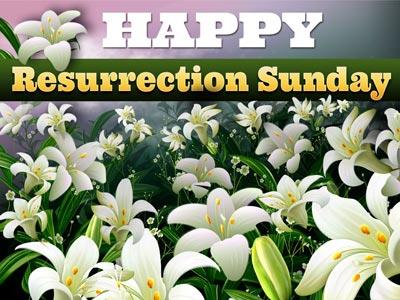-
This Special Day! Series
Contributed by Terry Blankenship on Nov 28, 2017 (message contributor)
Summary: Which day is THE Special Day? Saturday or Sunday? The Old Testament Shabbat or the New Testament Lord's Day? What do you think?
Exodus 20:8-11
This Special Day!
As I prepared this series, I realized how little we actually preach or teach on the Ten Commandments as if they are neither important nor relevant. They are both. It was very enlightening to me to preach through them. I learned a lot! I trust this series will encourage you to also preach through the Ten Commandments!
Introduction
"During the early days of the ministry of Dwight L. Moody, the great evangelist launched a series of meetings in Chicago with promise of the largest crowds that he had ever addressed up to that time. He was speaking of the life of Christ, and on the first Sunday night, October 8, 1871, he took as his topic the trial before Pilate. As he came to the end of his message, he turned to Matthew 27:22, ‘What shall I do then with Jesus, who is called Christ?’
He concluded, ‘I wish you would take this text home with you and turn it over in your minds during the week, and next Sabbath we will come to Calvary and the cross, and we will decide what to do with Jesus of Nazareth.’
It may have been an artistic device. But speaking of it in later years, Moody called that conclusion to his morning’s address the greatest mistake of his life. Even while Mr. Sankey was singing the final hymn:
‘Today the Savior calls;
For refuge fly;
The storm of justice falls,
And death is nigh-’
the fire engines began to sound on the street on their way to their first contact with the great Chicago fire in which Moody’s hall was laid in ashes, and in which it is estimated that over a thousand persons lost their lives. Moody never saw that congregation again, and some of those to whom he spoke on that night doubtlessly died.”
“Remember the Sabbath day, to keep it holy.”
A Day of Remembrance 8
Simply put, this is a day set apart or consecrated to remember our Creator.
The Principle
It is a sacred day – a holy day (קָדַשׁ Piel intensive; to set apart as sacred, consecrate, dedicate, to observe as holy, to keep sacred). Our Creator chose for us to reflect and remember Him
It is also a solemn day. God desires our attention and affection.
The Purpose
It is for man’s R&R (rest and recovery). It is a time for us to breakaway and enjoy our time with our Savior.
And He said to them, “The Sabbath was made for man, and not man for the Sabbath. Therefore the Son of Man is also Lord of the Sabbath.” Mark 2:27
The Practice
So how do we observe it? Some people are Seventh day advocates. They believe Saturday is the only day one can worship. Others believe that everyday is special to the Lord. There are even others who hold that (for believers in Jesus Christ) that the day of rest is the first day of the week or Sunday. Regardless where you stand on this issue, one day ought to be set aside making it the Lord’s Day.
So let no one judge you in food or in drink, or regarding a festival or a new moon or Sabbaths, which are a shadow of things to come, but the substance is of Christ. Colossians 2:16-17
One person esteems one day above another; another esteems every day alike. Let each be fully convinced in his own mind. He who observes the day, observes it to the Lord; and he who does not observe the day, to the Lord he does not observe it. Romans 14:5-6
Illustration
The Jewish leaders got very specific when it came to classifying exactly what was work and what was not. The following 39 principal classes were prohibited as work: “sowing, plowing, reaping, gathering into sheaves, threshing, winnowing, cleansing, grinding, sifting, kneading, baking, shearing wool, washing it, beating it, dyeing it, spinning it, making a warp of it, making two cords, weaving two threads, separating two threads, making a knot, untying a knot, sewing two stitches, catching a deer, killing, skinning, salting it, preparing its hide, scraping off its hair, cutting it up, writing two letters, blotting out for the purpose of writing two letters, building, pulling down, extinguishing, lighting a fire, beating with a hammer, and carrying from one property to another.” Most of these general categories were then further elaborated on with the outcome that the Jews had several hundred activities that they must avoid on the Sabbath day if they were to follow the letter of the law. “For example, the prohibition about tying a knot was much too general and so it became necessary to state what kinds of knots were prohibited and what kind not. . . . allowable knots were those that could be untied with one hand. A woman could tie up her undergarment, and the strings of her cap, those of her girdle, the straps of her shoes and sandals, of skins of wine and oil, of a pot with meat. She could tie a pail over the well with a girdle, but not with rope” because it would take two hands to untie a knot tied with rope. [The Zondervan Pictorial Dictionary p. 756]

 Sermon Central
Sermon Central



